CfP: Nomadic Camera. Photography, Displacement and Dis:connectivities, 13-15 jun 2023
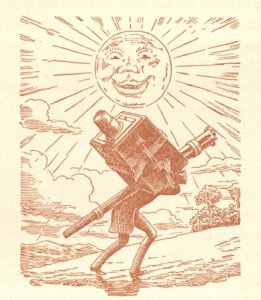 Nomadic Camera. Photography, Displacement and Dis:connectivities
Nomadic Camera. Photography, Displacement and Dis:connectivities
Workshop at the Käte Hamburger Research Centre Dis:connectivity in Processes of Globalisation (global dis:connect), Ludwig-Maximilians-Universität Munich
13–15 June 2023
Organisers: Burcu Dogramaci (Käte Hamburger Research Centre, LMU Munich), Winfried Gerling (European Media Studies – University of Applied Sciences Potsdam/University Potsdam and Brandenburg Centre for Media Studies (ZeM), Potsdam), Jens Jäger (University of Cologne) and Birgit Mersmann (University of Duisburg-Essen)
Processes of migration and flight after 2015 and their depiction, perception and distribution through photography form the initial point of the workshop and subsequent publication Nomadic Camera. The research project seeks to investigate the technical, medial and aesthetic relationship of photography and contemporary migration, historical exile and flight as the pivotal discursive setting in which specific forms of mobility extending from the mid-nineteenth century to today have been negotiated.
The concept adapts the term ‘nomadic’ — a transitory form of existence — beyond static concepts of being and national boundaries (Demos 2017). ‘Nomadic’ refers to a form of mobility that establishes continuities and discontinuities with other terms, such as ‘travel’, ‘displacement’ and ‘exile’ (Kaplan 1996). At the same time, displacements are intrinsically related to experiences of connectivities and disconnectivities, including place-making and belonging, ruptures between life and work in the past and present, experiences of loss and challenges of beginnings.
Viewing photography as a formative part of this history of mobility and migration, we will examine the interconnection between the concepts of ‘nomadic’ and ‘camera’. From its introduction in the early-nineteenth century and throughout numerous technical developments and innovations, photography has been a mobile medium closely tied to equipment, social conditions and cultural framings. Setting out from this hypothesis, the workshop and publication “Nomadic Camera” will centre around the following questions: how are dislocations interconnected with the technical evolutions of the mobile medium of photography? In which way do camera technologies presuppose and affect the visual formulation of exile, migration and flight experiences? What modifications in aesthetics and style, methods and practices of photography do temporary mobility, geographical relocation and resettlement imply?
The workshop organisers seek contributions that analyse the interrelation of photography and displacement from a variety of interdisciplinary perspectives and diverse methodologies, theoretical approaches and thematical framings. The workshop and the resulting publication will be arranged into four main sections:
Section A: Techniques, technologies
Section B: Body, agents, performativity
Section C: Media narrations, narratives
Section D: Circulation, archive, memory.
We invite also artistic visual essays in addition to scholarly contributions.
The Käte Hamburger Research Centre will cover hotel and return travel costs within Europe or, for those coming from other continents, a significant portion of return flights (details determined after acceptance) for those invited to present. The workshop will be in English. Presentations should be 30 minutes in length. Remote participation will be possible, as the workshop will be held in hybrid form.
Expanded, elaborated contributions based on selected talks from the workshop will be published in an edited volume. Final drafts must be submitted by 15 November 2023. Applicants should note the turn-around time between the workshop and the final submission date.
Proposals of up to 300 words should indicate the preferred section. Please send them along with a half-page CV to Burcu Dogramaci (burcu.dogramaci@lmu.de), Winfried Gerling (winfried.gerling@fh-potsdam.de), Jens Jäger (jens.jaeger@uni-koeln.de), Birgit Mersmann (birgit.mersmann@uni-due.de) by 15 November 2022.
Continue Reading





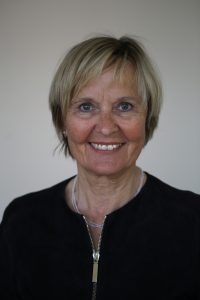 A warm welcome to our new fellow Gabriele Klein who joins the Kolleg until autumn 2023.
A warm welcome to our new fellow Gabriele Klein who joins the Kolleg until autumn 2023.
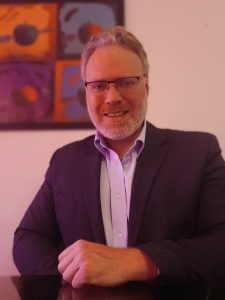 Our fellow Kevin Ostoyich is giving a talk on Jewish refugees in Shanghai during the Second World War at the Begegnungsstätte Neue Synagoge in Erfurt (address:
Our fellow Kevin Ostoyich is giving a talk on Jewish refugees in Shanghai during the Second World War at the Begegnungsstätte Neue Synagoge in Erfurt (address: 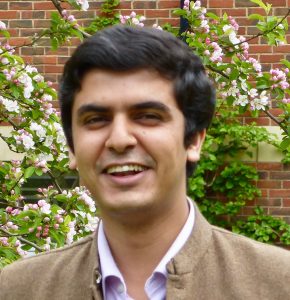 A warm welcome to our new fellow Siddharth Pandey who joins the Kolleg until autumn 2023.
A warm welcome to our new fellow Siddharth Pandey who joins the Kolleg until autumn 2023.
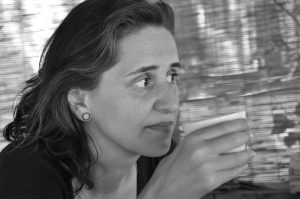 A warm welcome to our new fellow Viviana Iacob who joins the Kolleg until autumn 2023.
Viviana Iacob is a theatre historian with a background in the history of art and theatre as well as Shakespeare studies. Her work relies on interdisciplinary methodologies and a trans-regional reading of post-war Eastern European theatre cultures and focuses on the global history of illiberal regimes during the Cold War and its aftermath. She has conducted archival research on the history of international theatre organisations and their role in globalising state-socialist cultures after 1945 in Romania, Hungary, Bulgaria, Germany and France. Between May 2020 and July 2022 she was a Humboldt fellow, which gave her the opportunity to develop a monograph that explores the circulations and contributions of Eastern European theatre practitioners in international organisations. These trajectories of expertise reflect North-East-South entanglements and networks forged at the intersection of Cold War politics, decolonisation and globalisation.
Project: Alternative theatre globalisations: internationalising illiberal regimes since the late 1970s
The project re-historicises the relationship between globalisation and theatre by analysing the practices of internationalisation and cultural diplomacy deployed by illiberal regimes before and after 1989. The project identifies trans-regional dis:connections that differ from those converging on or emerging from the West. The research combines the study of late-Cold War globalisation processes with a focus on international theatre organisations. By highlighting alternative globalities, the project addresses patterns of integration and disintegration that have been marginalised by entrenched Western-centric discourses on recent histories of theatre.
To read a interview with Viviana, click
A warm welcome to our new fellow Viviana Iacob who joins the Kolleg until autumn 2023.
Viviana Iacob is a theatre historian with a background in the history of art and theatre as well as Shakespeare studies. Her work relies on interdisciplinary methodologies and a trans-regional reading of post-war Eastern European theatre cultures and focuses on the global history of illiberal regimes during the Cold War and its aftermath. She has conducted archival research on the history of international theatre organisations and their role in globalising state-socialist cultures after 1945 in Romania, Hungary, Bulgaria, Germany and France. Between May 2020 and July 2022 she was a Humboldt fellow, which gave her the opportunity to develop a monograph that explores the circulations and contributions of Eastern European theatre practitioners in international organisations. These trajectories of expertise reflect North-East-South entanglements and networks forged at the intersection of Cold War politics, decolonisation and globalisation.
Project: Alternative theatre globalisations: internationalising illiberal regimes since the late 1970s
The project re-historicises the relationship between globalisation and theatre by analysing the practices of internationalisation and cultural diplomacy deployed by illiberal regimes before and after 1989. The project identifies trans-regional dis:connections that differ from those converging on or emerging from the West. The research combines the study of late-Cold War globalisation processes with a focus on international theatre organisations. By highlighting alternative globalities, the project addresses patterns of integration and disintegration that have been marginalised by entrenched Western-centric discourses on recent histories of theatre.
To read a interview with Viviana, click 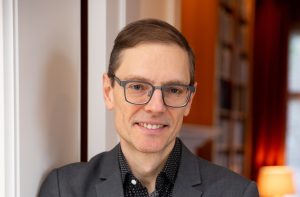 A warm welcome to our new guest Martin Puchner who joins the Kolleg until late spring 2023.
Martin Puchner has worked on such disparate topics as modernist closet dramas, revolutionary manifestos, Platonic dialogues, a history of world literature, environmental storytelling and Rotwelsch, the secret language of Central Europe. Having studied at the universities of Konstanz and Bologna, he pursued these topics at Columbia and Harvard, with shorter stints at Cornell, the Berlin Institute for Advanced Study, the New York Public Library and the American Academy. He occasionally attempts to bring the humanities to the attention of a larger public with op-eds, book reviews, essays, anthologies and open online courses.
At global dis:connect, Martin will expand his forthcoming history of culture, entitled Culture: the story of us, from cave art to K-pop, into a textbook introduction to the arts and humanities. The work focuses on mechanisms of transmission, with particular emphasis on interruption, misreading, appropriation and — of course — global dis:connections.
A warm welcome to our new guest Martin Puchner who joins the Kolleg until late spring 2023.
Martin Puchner has worked on such disparate topics as modernist closet dramas, revolutionary manifestos, Platonic dialogues, a history of world literature, environmental storytelling and Rotwelsch, the secret language of Central Europe. Having studied at the universities of Konstanz and Bologna, he pursued these topics at Columbia and Harvard, with shorter stints at Cornell, the Berlin Institute for Advanced Study, the New York Public Library and the American Academy. He occasionally attempts to bring the humanities to the attention of a larger public with op-eds, book reviews, essays, anthologies and open online courses.
At global dis:connect, Martin will expand his forthcoming history of culture, entitled Culture: the story of us, from cave art to K-pop, into a textbook introduction to the arts and humanities. The work focuses on mechanisms of transmission, with particular emphasis on interruption, misreading, appropriation and — of course — global dis:connections.
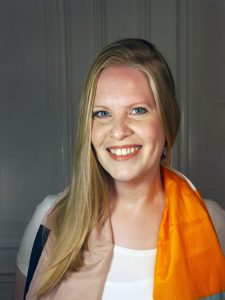 A warm welcome to our new fellow Anna Grasskamp who joins the Kolleg until late summer 2023.
Anna Grasskamp is a lecturer in art history at the University of St Andrews. She has authored Art and Ocean Objects of Early Modern Eurasia. Shells, Bodies, and Materiality (Amsterdam University Press, 2021) and Objects in Frames: Displaying Foreign Collectibles in Early Modern China and Europe (Reimer, 2019). Her articles have appeared in Res: Anthropology and Aesthetics, Renaissance Studies and other journals. Anna is a subject editor at the review journal SEHEPUNKTE and a member of the editorial boards of the book series Global Epistemics and the Journal for the History of Knowledge.
Project:
Trash as treasure: value disconnections and the recycling of Chinese matter in art and design, 1500–2020
Recycling materials ‘made in China’ has a short history in the daily practices of middle-class households, but a long history in global art and design. Chinese natural resources, such as rare-earth metals used in digital devices and commodities like porcelain made of Chinese clay, have been pivotal to material, technological and artistic exchanges between Europe and Asia since early modernity. This project investigates art and design as fields of pioneering research in which strategies to reuse Chinese matter were developed centuries before the term ‘recycling’ – as we use it today – was adopted. It researches material flows of garbage in relation to disrupted material value systems associated with trash. Disruptions take place across cultural boundaries that allow for radical changes in systems of material evaluation (e.g. enabling the perception of ‘trash as treasure’) and through transcultural artistic research, which reuses and re-evaluates seemingly ‘meaningless’ garbage by turning it into multi-million-dollar art installations and prized design innovations. The project offers a non-hegemonic history of art and design, which researches urban hubs and rural ecologies, the works of artists and artisans, as well as the products of craftsmen and factory workers across social, historic and cultural divides.
A warm welcome to our new fellow Anna Grasskamp who joins the Kolleg until late summer 2023.
Anna Grasskamp is a lecturer in art history at the University of St Andrews. She has authored Art and Ocean Objects of Early Modern Eurasia. Shells, Bodies, and Materiality (Amsterdam University Press, 2021) and Objects in Frames: Displaying Foreign Collectibles in Early Modern China and Europe (Reimer, 2019). Her articles have appeared in Res: Anthropology and Aesthetics, Renaissance Studies and other journals. Anna is a subject editor at the review journal SEHEPUNKTE and a member of the editorial boards of the book series Global Epistemics and the Journal for the History of Knowledge.
Project:
Trash as treasure: value disconnections and the recycling of Chinese matter in art and design, 1500–2020
Recycling materials ‘made in China’ has a short history in the daily practices of middle-class households, but a long history in global art and design. Chinese natural resources, such as rare-earth metals used in digital devices and commodities like porcelain made of Chinese clay, have been pivotal to material, technological and artistic exchanges between Europe and Asia since early modernity. This project investigates art and design as fields of pioneering research in which strategies to reuse Chinese matter were developed centuries before the term ‘recycling’ – as we use it today – was adopted. It researches material flows of garbage in relation to disrupted material value systems associated with trash. Disruptions take place across cultural boundaries that allow for radical changes in systems of material evaluation (e.g. enabling the perception of ‘trash as treasure’) and through transcultural artistic research, which reuses and re-evaluates seemingly ‘meaningless’ garbage by turning it into multi-million-dollar art installations and prized design innovations. The project offers a non-hegemonic history of art and design, which researches urban hubs and rural ecologies, the works of artists and artisans, as well as the products of craftsmen and factory workers across social, historic and cultural divides.
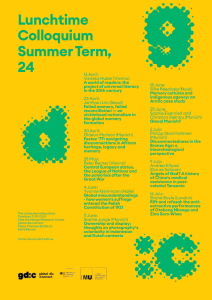
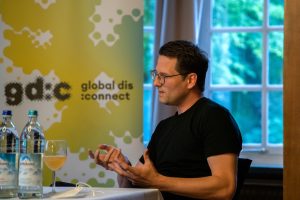
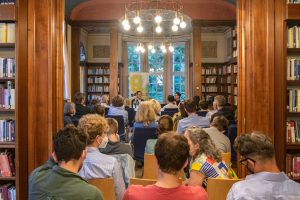
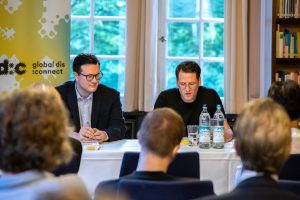
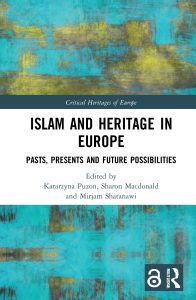 Our new fellow Katarzyna Puzon has recently co-edited the book "Islam and Heritage in Europe: Pasts, Presents and Future Possibilities". On her behalf, we would like to point you to the hybrid presentation of the book on Monday, 11 July 2022. Looking at diverse trajectories of people and things, the volume examines developments in various parts of Europe, including France, Germany, Russia, Turkey, and the Balkans. At a roundtabel discussion, the participants will talk about entanglements between heritage, Islam and Europe and ways in which these entanglements have played out against the backdrop of recent developments, such as debates on restitution, decolonising museums or the 'refugee crisis'. The roundtable discussion will include inputs from Wendy Shaw, Peter McMurray, Jesko Schmoller, Avi Astor, Diletta Guidi, Banu Karaca, Mirjam Brusius, Christine Gerbich and Rikke Gram, and the editors, Katarzyna Puzon, Sharon Macdonald and Mirjam Shatanawi.
Our new fellow Katarzyna Puzon has recently co-edited the book "Islam and Heritage in Europe: Pasts, Presents and Future Possibilities". On her behalf, we would like to point you to the hybrid presentation of the book on Monday, 11 July 2022. Looking at diverse trajectories of people and things, the volume examines developments in various parts of Europe, including France, Germany, Russia, Turkey, and the Balkans. At a roundtabel discussion, the participants will talk about entanglements between heritage, Islam and Europe and ways in which these entanglements have played out against the backdrop of recent developments, such as debates on restitution, decolonising museums or the 'refugee crisis'. The roundtable discussion will include inputs from Wendy Shaw, Peter McMurray, Jesko Schmoller, Avi Astor, Diletta Guidi, Banu Karaca, Mirjam Brusius, Christine Gerbich and Rikke Gram, and the editors, Katarzyna Puzon, Sharon Macdonald and Mirjam Shatanawi.